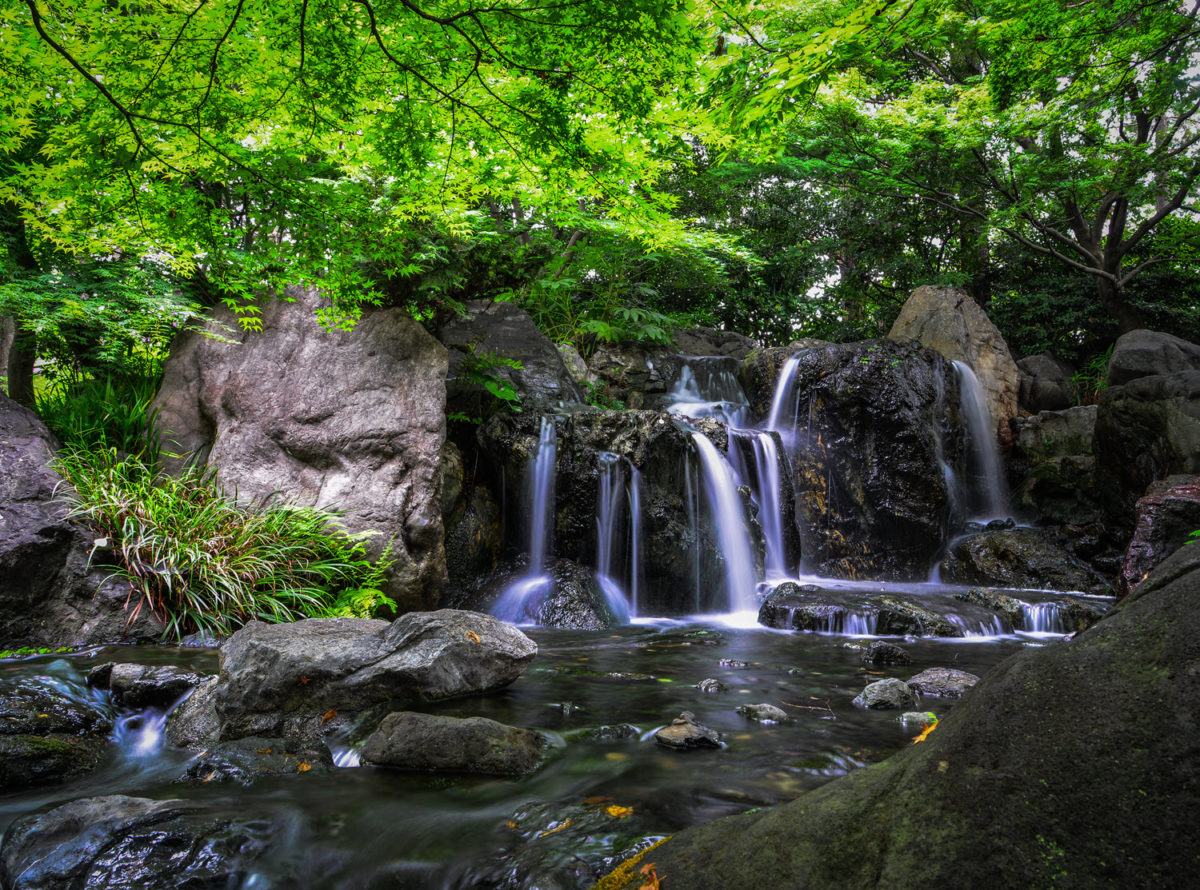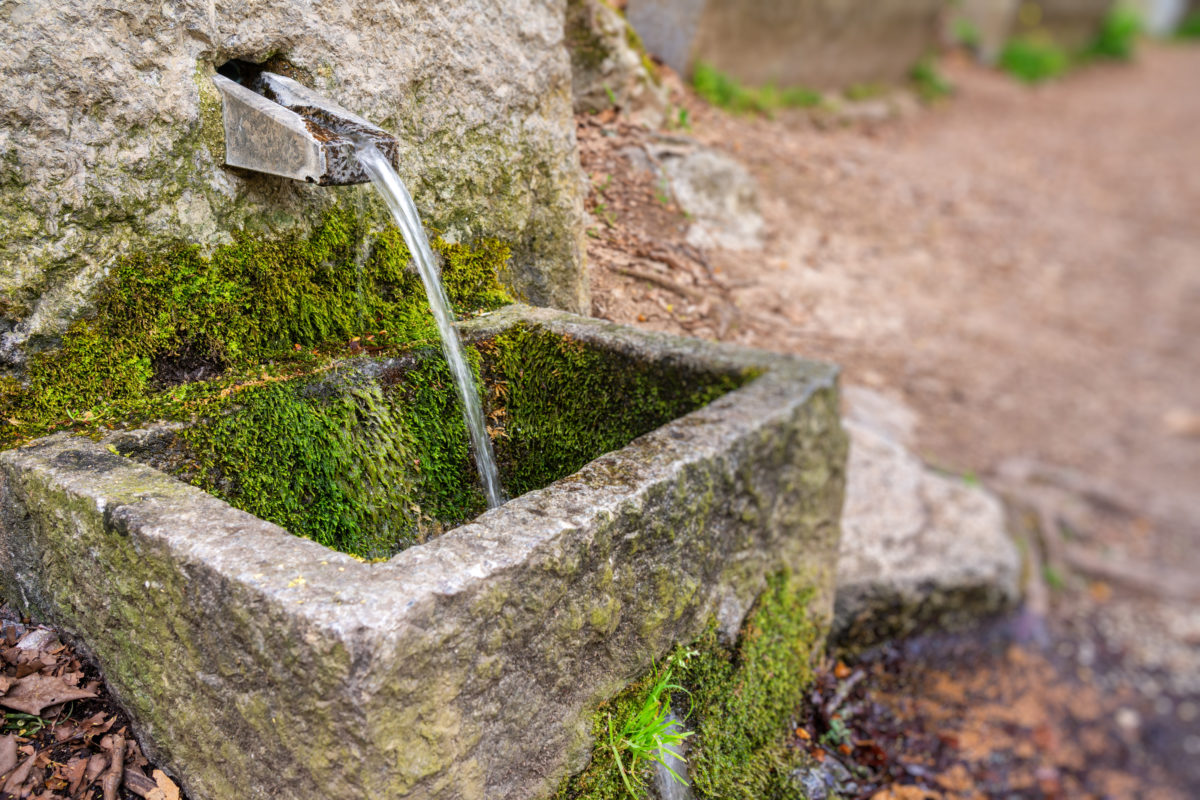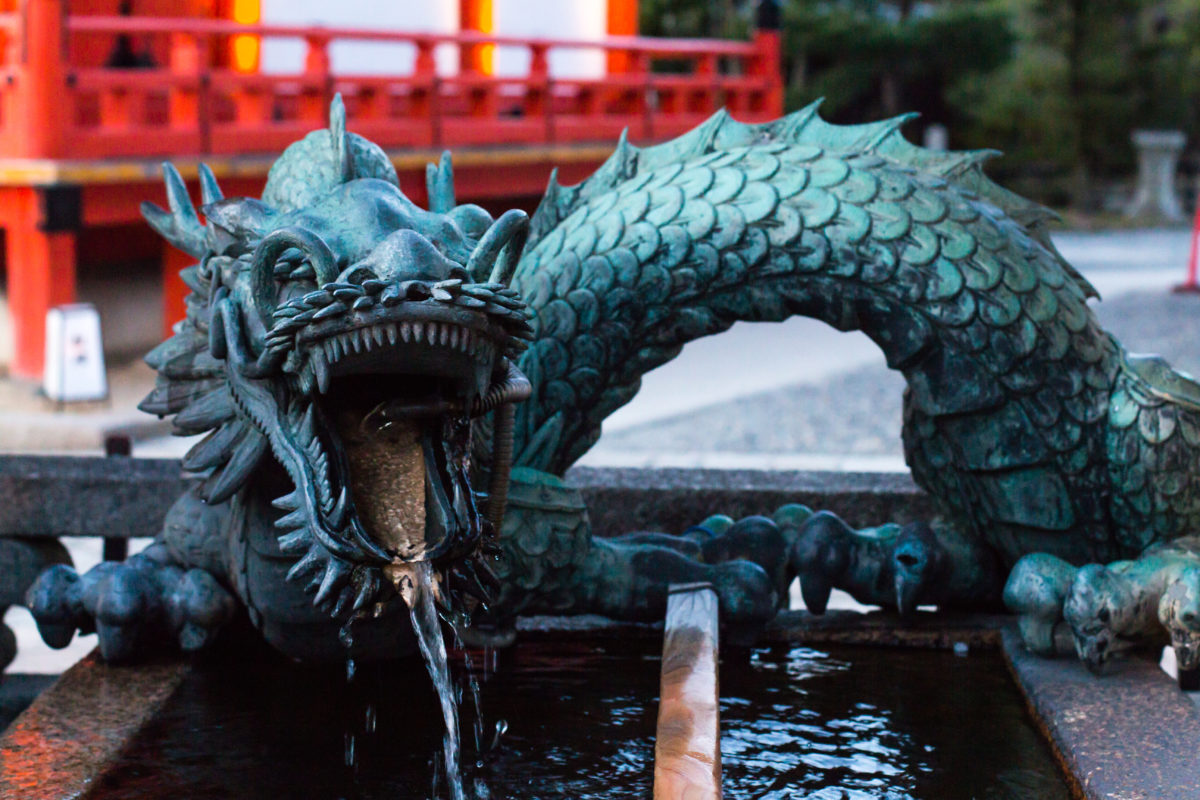
Throughout history, Chinese tea lovers have known that superior water can turn an inferior tea into a palatable tea, while, conversely, inferior water makes a superior tea second-rate. The importance of water has been eulogized in poetry and literature throughout the dynasties of the Middle Kingdom.
Which water is considered superior in China today for brewing tea? Water freshly drawn from a slow-moving stream, preferably at dawn, is the most sought after for its trace elements as well as being naturally filtered through sand and rocks. It is believed to give the tea a sweeter taste and smoother mouthfeel.
However, it may surprise many tea drinkers – both within and outside China – that the science says otherwise. If you want a better-tasting tea, specifically green tea, your water of choice should be from the tap.

A recent study
In a 2019 study by Franks, et. al.,[1] black and green tea were brewed with bottled, tap, and deionized water then analyzed by a human consumer sensory panel consisting of 103 tea consumers from the United States. The results showed that the type of water used to brew tea did indeed drastically affect sensory properties of green tea, and mildly so for black tea.
The sensory panel found that green tea infused with tap water was less bitter, and also perceived as sweeter than the same tea brewed in bottled or deionized water.
For black tea, the sensory difference was less obvious, with a tap water brew perceived as more earthy than a bottled or deionized water brew. Ultimately, however, this difference had little effect in the final taste preference of the panelists.
So the question is: Why the difference?
It is the minerals in tap water, such as calcium, that lead to inferior extraction of catechins in green tea leaves. Catechins are a type of phenolic compound abundant in tea, cocoa and berries to which are ascribed various antioxidant effects, such as being anti-inflammatory, anti-carcinogenic, etc. Catechins are also the cause of the bitter taste in teas.
On the other hand, when green tea is brewed with bottled or deionized water, there is a superior extraction of catechins, nearly double the amount compared to tap water.

The reason why water choice doesn’t matter as much for black tea, compared to green tea, is that catechins are normally lower in black tea since the majority of catechins are converted to theaflavins and thearubigins in the oxidization process. Theaflavins and thearubigins are groups of polyphenol pigments that possess several health benefit qualities, including fat-reducing and glucose-lowering capabilities, lifestyle-related disease prevention, and cancer prevention.[2] (An interesting side note is the fact that theaflavin content has been found to correlate positively with tea liquor brightness, whereas thearubigin content has been found to correlate negatively with tea liquor brightness.[3])
There have been other studies as well that have found similar results to the 2019 study by Franks et. al., such as the 2018 study undertaken by Liu et. al.[4]
So what’s the upshot?
If the reason you are drinking green tea is taste over health, brew your tea with tap water to get a less bitter cup. (Of course, every region in the world will have different concentrations and a different mix of chemical compounds in their tap water, thereby affecting the final taste of your tea, which would also make for an interesting geographical sensory study in the future.)
If your purpose in drinking green tea, however, is for its full health benefits, then go for bottled or deionized water, and accept the trade-off of a less palatable infusion.
But wait a second…
You may have heard of a similar sensory study conducted in China where an expert sensory panel classed bitter-tasting green tea as being superior in taste, thereby getting the best of both worlds – palatability and health benefits.[5] It’s tempting to come up with a bunch of theories to account for the taste preference difference between the Chinese and US studies – an expert panel versus a layperson panel; a cultural diet low in fat and sugar that cleanses the palate versus a cultural diet high in fat and sugar that numbs the palate; a cultural diet that frequently encounters bitter vegetables and herbs versus a cultural diet that is generally lower in consumption of greens. But this is just all speculation. A methodical scientific side-study would be the only way to definitively account for such a difference.
One more thing…
There’s one last little titbit you should be aware of before making your final choice on water. A 2015 study by Bond et. al,[6] found that if your region’s water contains high levels of chlorine, it will result in your tea having a chlorine-like aftertaste and can also affect the aroma compounds of your tea. Boiling water will only reduce the chlorine content by 5% to 19%. No one wants to associate their tea with the smells and tastes of a public swimming pool, for a variety of reasons, so make sure you look into the water chlorine levels in your region.
Conclusion
It is a little peculiar that so many tea drinkers around the world pay so little attention to the type of water they use to brew their tea, given it is the sole carrier of the tea. Particularly when it comes to artisan teas, ask yourself if it would be fair to undercut all of those labor-intensive steps undertaken by your tea masters simply because of your poor choice of water in the final preparation step? Consider it a mark of respect to your hard-working tea artisan and to Mother Nature herself when you seriously contemplate your choice of H20 for your next brew. And consider it a salute to your ancestral tea friends as well – Ming Yu Xiong, Da Fu Zhang, Du Yu, and Lu Yu.

Footnotes:
[1] Franks M, Lawrence P, Abbaspourrad A and Dando R. The influence of water composition on flavor and nutrient extraction in green tea and black tea. Nutrients. 2019. v11(1).
[2] For example, Takemoto M and Takemoto, H. Synthesis of theaflavins and their functions. Molecules. 2018. v23(4); Zhu K, Ouyang J, Huang J, and Liu ZH. Research progress of black tea thearubigins: a review. Critical Reviews in Food Science and Nutrition. 2020. <https://www.tandfonline.com/doi/abs/10.1080/10408398.2020.1762161>.
[3] Ngure FM, Wanyoko JK, Mahungu SM, and Shitandi AA. Catechins depletion patterns in relation to theaflavin and thearubigins formation. Food Chemistry. 2009. v115(1).
[4] Liu Y, Luo L, Liao C, Chen L, Wang J, Zeng L. Effects of brewing conditions on the phytochemical composition, sensory qualities and antioxidant activity of green tea infusion: A study using response surface methodology. Food Chemistry. 2018. v269.
[5] Lin SD, Yang JH, Hsieh YJ, Liu EH, and Mau JL. Effect of different brewing methods on the quality of green tea. Journal of Food Processing and Preservation. 2013. v38.
[6] Bond T, Tang, SC, Graham N, and Templeton MR. Emerging investigators series: formation of disinfection byproducts during the preparation of tea and coffee. Environmental Science: Water Research & Technology. 2015. v2.
Du Yu, Ode to Tea, 205-210 AD
Tea Market
Get More Value from Your Tea: BRU Maker One
+41794574278
Jacque's Organics
(647) 804-7263
as a gardener I have always taken my tap water, left off a lid so that the chlorine could dissipate in the next 48 hours. Plants don’t care for it either! Have you heard about this? paula winchester
On the point of the US study with the consumer sensory panel, it is also worth noting that if they are used to drinking their tea with a particular water (most likely tap) then it is likely that they would naturally be biased towards the taste profile they are most familiar with – something that a professional sensory panel should be able to compensate for. It gets even more interesting when you consider studies that have shown that the microbiome of individuals is linked to taste preferences, which in turn the microbiome develops based on what is consumed, this too would lead non-professional sensory panels to have a bias towards what they are familiar with – because their microbiome is calling for it.
On the extraction of the catechins, water temperature will also have an impact so potentially drinkers could adjust brewing conditions (temp, quantity and time) to compensate for the water available depending on their desirable outcome – high catechin & health vs low catechin and smoother/sweeter taste.
Great article, thank you!
I’m glad you talked about chlorine. Maybe I am overly sensitive to it, but I cannot drink tea made with chlorinated water. We are fortunate because the water from our well, although high in dissolved minerals, makes nice tea.